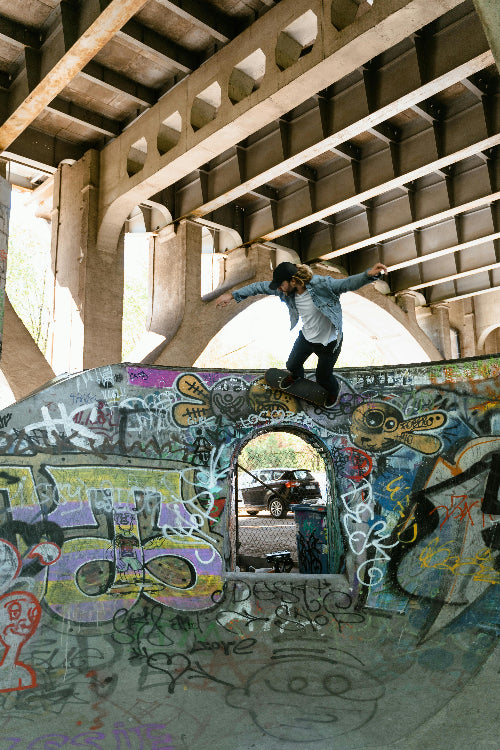Skateboarding is more than just a sport; it's a lifestyle, a culture, and a form of self-expression. Beyond the thrill of landing tricks and conquering obstacles, skateboarding instills valuable skills and attributes that carry over into various other sports. From balance and coordination to creativity and determination, the lessons learned on a skateboard can translate seamlessly into other athletic endeavors. In this blog post, we'll explore how skateboarding influences and enriches other sports.
-
Balance and Coordination: Skateboarding demands exceptional balance and coordination. Riders must maintain equilibrium while navigating ramps, rails, and ledges, constantly adjusting their body position to stay upright. This finely tuned balance translates directly into sports like snowboarding, surfing, and even gymnastics. Athletes in these disciplines rely on similar skills to maintain control over their movement.

-
Adaptability and Creativity: One of the hallmarks of skateboarding is its emphasis on creativity. Riders are encouraged to think outside the box, inventing new tricks and lines that defy convention. This spirit of innovation fosters adaptability, as skaters learn to adapt their skills to different terrain and obstacles. Similarly, athletes in sports like parkour, freestyle skiing, and BMX freestyle thrive on creativity and adaptability, constantly pushing the boundaries of what's possible within their respective disciplines.

-
Resilience and Determination: Skateboarding is a sport of persistence. It's not uncommon for skaters to spend hours, days, or even weeks attempting to land a single trick. This perseverance builds resilience and determination, teaching athletes to overcome failure and embrace the process of improvement. These qualities are invaluable in sports like rock climbing, where success often hinges on perseverance and mental fortitude in the face of adversity.

-
Spatial Awareness and Risk Management: Navigating the urban landscape on a skateboard requires keen spatial awareness and risk management skills. Skaters must constantly assess their surroundings, calculating the trajectory of their movements and identifying potential hazards. This heightened awareness translates into sports like mountain biking and motocross, where athletes must navigate challenging terrain while maintaining a keen awareness of their surroundings and assessing risk factors in real-time.

-
Community and Camaraderie: Skateboarding fosters a strong sense of community and camaraderie among participants. Whether it's sharing tips and tricks at the skatepark or cheering each other on during competitions, skaters support and inspire one another to reach new heights. This sense of belonging extends beyond skateboarding into other sports communities, where athletes form tight-knit bonds built on mutual respect and shared passion for their chosen pursuits.

Conclusion: Skateboarding is more than just a sport; it's a way of life that influences and enriches a wide range of athletic endeavors. From balance and coordination to adaptability and resilience, the lessons learned on a skateboard have a profound impact on athletes across various disciplines. By embracing the spirit of creativity, perseverance, and community that defines skateboarding culture, athletes can unlock their full potential and excel in whatever sport they choose to pursue.

